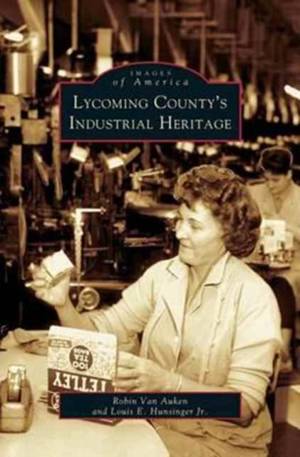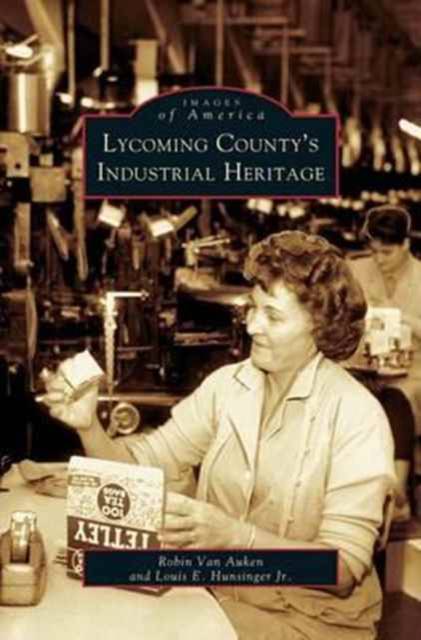
Door een staking bij bpost kan je online bestelling op dit moment iets langer onderweg zijn dan voorzien. Dringend iets nodig? Onze winkels ontvangen jou met open armen!
- Afhalen na 1 uur in een winkel met voorraad
- Gratis thuislevering in België vanaf € 30
- Ruim aanbod met 7 miljoen producten
Door een staking bij bpost kan je online bestelling op dit moment iets langer onderweg zijn dan voorzien. Dringend iets nodig? Onze winkels ontvangen jou met open armen!
- Afhalen na 1 uur in een winkel met voorraad
- Gratis thuislevering in België vanaf € 30
- Ruim aanbod met 7 miljoen producten
Zoeken
€ 44,45
+ 88 punten
Omschrijving
Lycoming County has a rich industrial history, first in lumber and then in manufacturing. Thousands were employed as lumberjacks, and others worked in sawmills, planing mills, or furniture factories that processed the lumber. Until 1894, lumber was the county's main industry. Inevitably, the mountainsides were denuded and floods toppled the remaining lumbering companies. The heyday over, many
company towns collapsed. Boards of trade were created to entice manufacturers to the region. During the first half of the twentieth century, Lycoming once again prospered with hundreds of new entrepreneurs and companies. Lycoming County's Industrial Heritage documents the people who worked in the factories, mills, and for the manufacturers that no longer exist, victims of recession, urban sprawl, and offshore industries. Each image honors the role of labor and
serves as a reminder of the individuals who helped build industrial America.
company towns collapsed. Boards of trade were created to entice manufacturers to the region. During the first half of the twentieth century, Lycoming once again prospered with hundreds of new entrepreneurs and companies. Lycoming County's Industrial Heritage documents the people who worked in the factories, mills, and for the manufacturers that no longer exist, victims of recession, urban sprawl, and offshore industries. Each image honors the role of labor and
serves as a reminder of the individuals who helped build industrial America.
Specificaties
Betrokkenen
- Auteur(s):
- Uitgeverij:
Inhoud
- Aantal bladzijden:
- 130
- Taal:
- Engels
Eigenschappen
- Productcode (EAN):
- 9781531622411
- Verschijningsdatum:
- 6/07/2005
- Uitvoering:
- Hardcover
- Formaat:
- Genaaid
- Afmetingen:
- 170 mm x 244 mm
- Gewicht:
- 412 g

Alleen bij Standaard Boekhandel
+ 88 punten op je klantenkaart van Standaard Boekhandel
Beoordelingen
We publiceren alleen reviews die voldoen aan de voorwaarden voor reviews. Bekijk onze voorwaarden voor reviews.











